Nội Dung Chính
(Page 122)

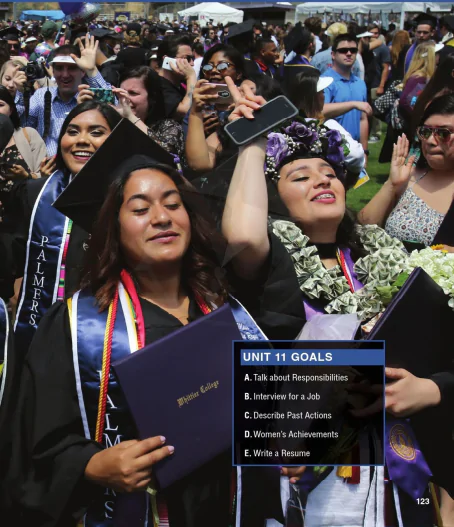
These students are graduating from Whittier College in California, US.
Look at the photo and answer the questions.
1. What is their achievement?
2. What personal achievements are you proud of?
(Page 123)
UNIT 11 GOALS
A. Talk about Responsibilities
B. Interview for a Job
C. Describe Past Actions
D. Women's Achievements
E. Write a Resume
(Page 124)
A GOAL Talk about Responsibilities
Vocabulary
WORD FOCUS
Clean is used for different chores around the house: clean your room/ the car/ the floor
A Label the photos with the chores from the box.
| buy the groceries clean your room clean the car cook dinner take out the trash vacuum the floor walk the dog wash the dishes |

1. _____________________________ 2. _____________________________ 3. _____________________________

4. _____________________________ 5. _____________________________ 6. _____________________________

7. _____________________________ 8. _____________________________
B Categorize the chores in A next to the comments below. You can use the same chore more than once.
1. "These chores are easy." __________________________________________________
2. "These chores are boring." ________________________________________________
3. "I often do these chores." _________________________________________________
4. "I never do these chores." _________________________________________________
C In pairs, compare your answers in B. For the chores in item 4, say who does those chores in your house.
I often wash the dishes. I never cook dinner. My parents do.
(Page 125)
Grammar (See Grammar Reference p. 159)
| Present Perfect |
| Affirmative Statements | I have finished my homework. / He has finished his homework. |
| Negative Statements | I haven't cooked dinner. / She hasn't cooked dinner. |
| Yes/No Questions | Have you washed the dishes? / Has he washed the dishes? |
| Short Answers | Yes, I have. / Yes, he has. No, I haven't. / No, she hasn't. |
| Wh-Questions | What have you done today? |
| Form the present perfect with have / has + past participle. We can use the present perfect (like the simple past) to talk about completed actions in the past, but without saying when they happened. Past Participles Regular verbs end in -ed: walk → walked, clean → cleaned Irregular verbs have irregular past participles: cut→ cut, buy→ bought |
D 🎧58 Listen to a conversation between a mother and daughter. Check (✔) the things they have done. Put an (X) for the things they haven't done.
1. ![]()
2. ⬜ vacuum the floor 4. ⬜buy some groceries
E 🎧58 Complete the conversation with the present perfect. Then listen and check your answers.
Mom: Hi, Lyn. I'm home.
Lyn: Hi, Mom.
Mom: (1) __________ you __________ (walk) the dog?
Lyn: Yes, I (2) __________. And I (3) __________ (vacuum) the floor.
Mom: Wonderful! (4) __________ you __________ (finish) your homework?
Lyn: No, I (5) __________. I'm going to do it now.
Mom: OK. Are you hungry? I bought some groceries, so I'm going to cook dinner.
Lyn: Great!
F Practice the conversation in pairs. Switch roles and practice it again.
Have you walked the dog?
Yes, I have.
G Look at the chores in A. Pick four chores and put a check (✔) next to them. In pairs, take turns asking and answering questions about the chores. Say you've done the ones with checks.
✔️GOAL CHECK
Talk about Responsibilities
1. Make a list of chores or activities you have done this week.
2. In pairs, talk about the chores and activities you have done this week.
What have you done this week?
I've finished all my homework.
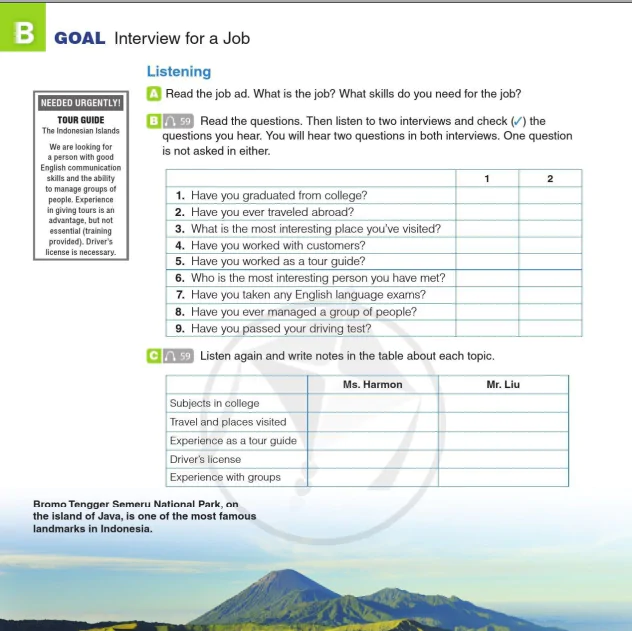
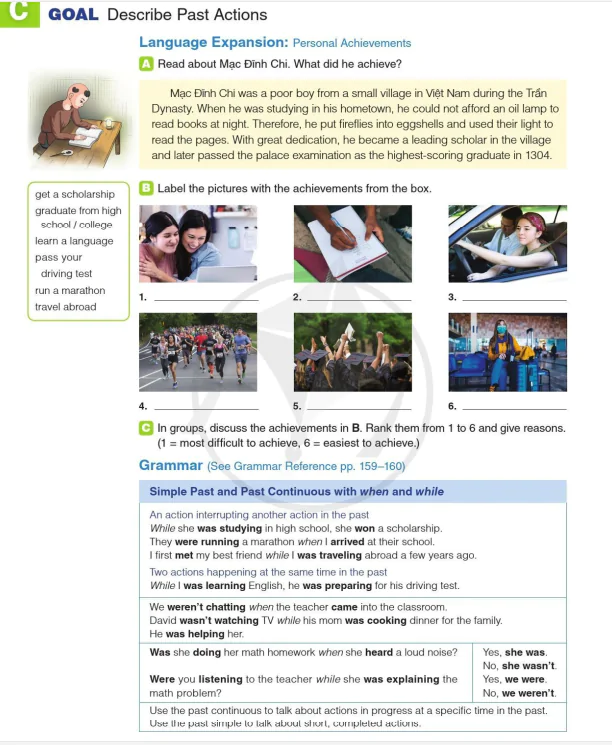
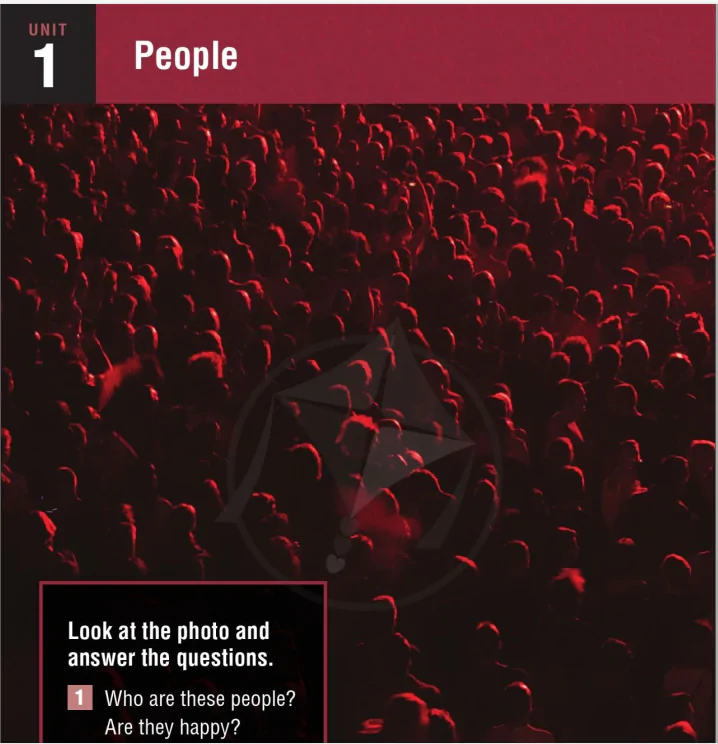
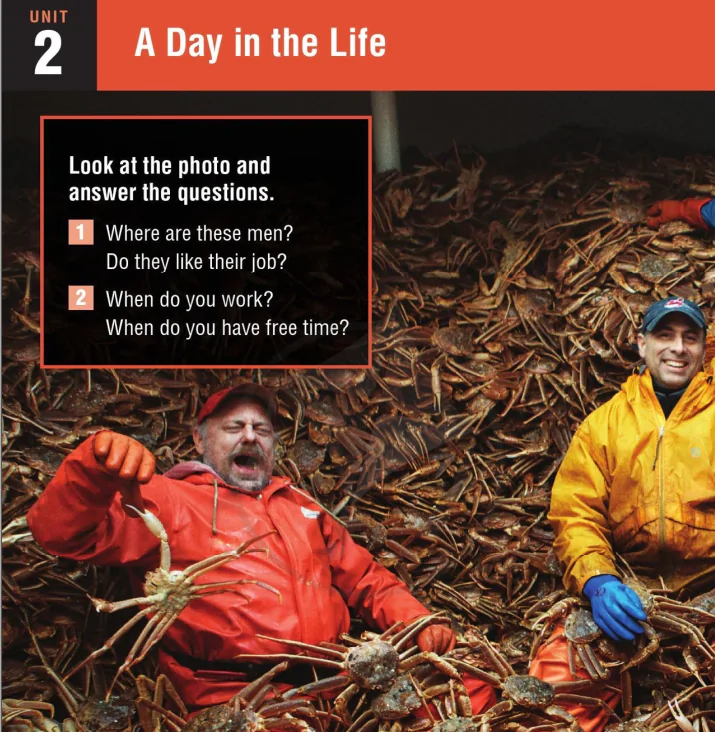

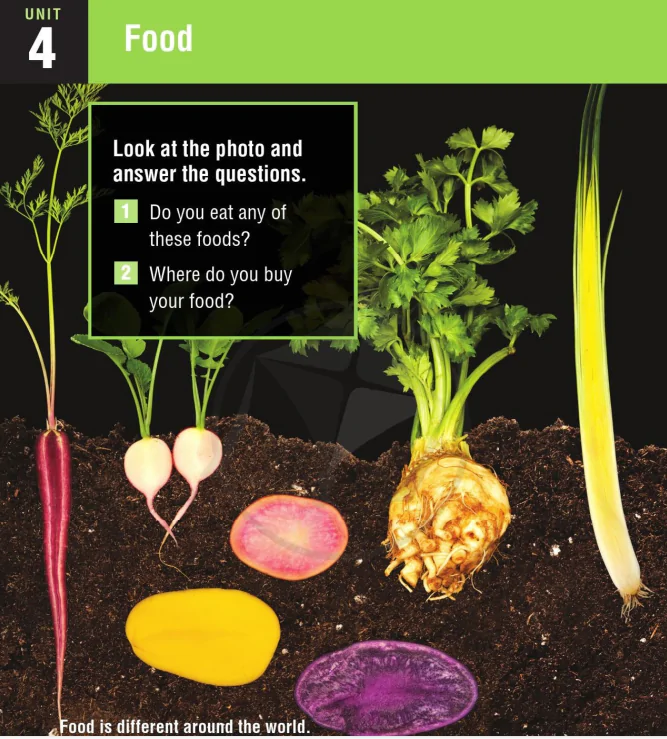




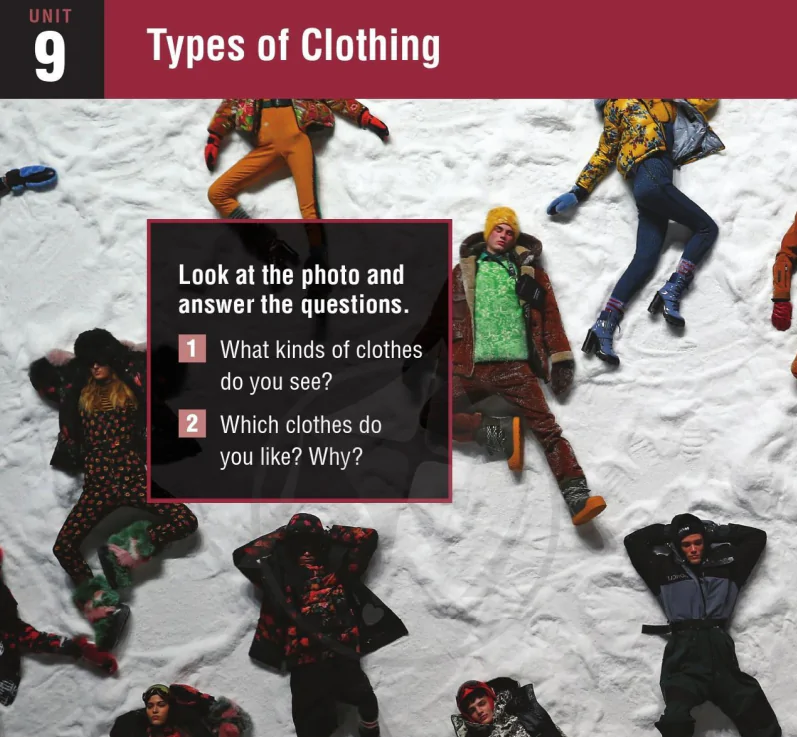



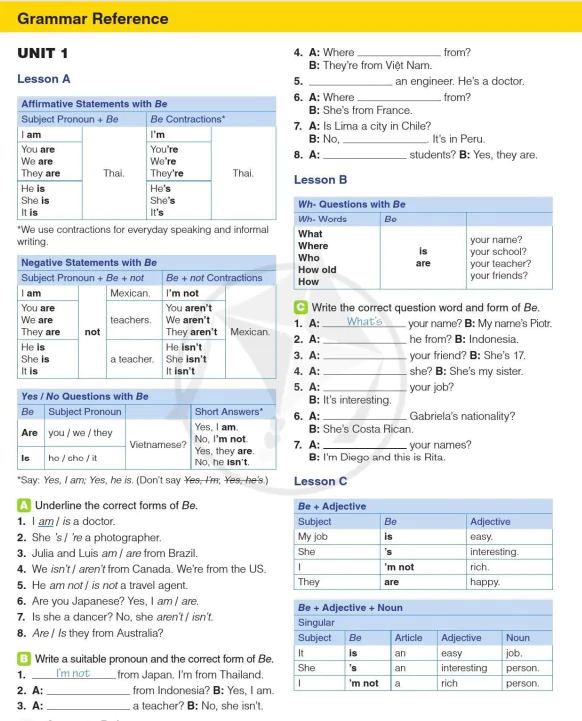
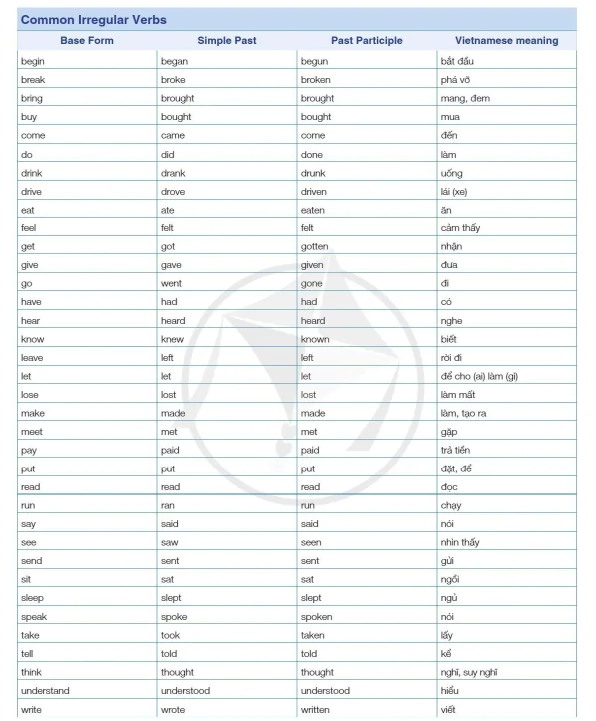
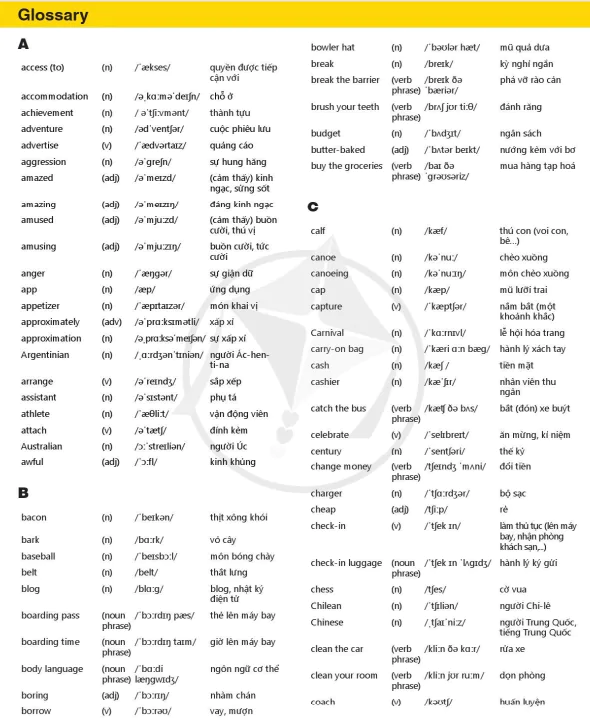

















Bình Luận
Để Lại Bình Luận Của Bạn